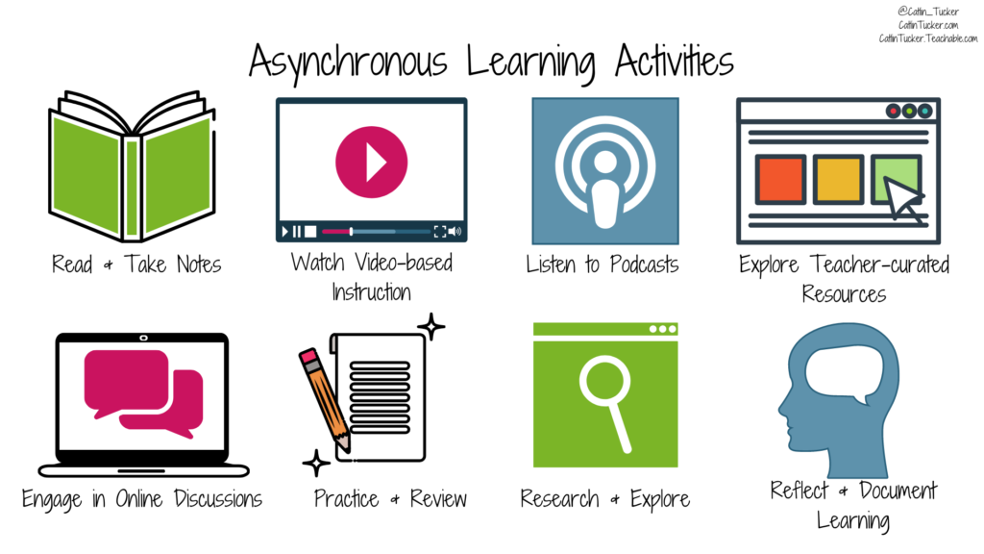Welcome and Congratulations on taking your next steps to enhance yourself and your career. Over the course of this module, we are going to introduce you to the world of Online Learning.
You may be new to the world of online learning, but don’t worry we are here to guide you through your journey to help make sure you have the best start in your educational journey. Whether you are new to this style of learning or an avid user, we will be here with you every step to ensure you are set up and accomplish your educational goals to give you the best start.
We will be exploring the world of online education as well as introducing you to the world of Bookkepping and Accounting.

Congratulations, and welcome to the wonderful world of Swinburne Open Education. You have embarked on the next step in your academic career.
The world is evolving, and education needs to evolve with it to ensure future workforce needs are met. We are here to help our students reach their study and career goals.
When you study at Swinburne Open Education, you know your learning is in the best hands, with the education experience and the prestige of our strategic partnership with Swinburne University of Technology, and the commercial backing of one of the largest private education groups in Asia-Pacific, UP Education. Together, we have built a world-class, online native learning platform, to help you reach your career goals – anywhere, anytime.
Studying opportunities
This course you are about to embark on is a stepping stone to further your career or educational goals this course is a direct gateway to other qualifications. This includes
| Swinburne Online Education | Swinburne Online |
|---|---|
| Certificate IV Accounting and Bookkeeping | Bachelor in Business with a Major in Accounting and Finance |
| Bachelor of Business with a Major in Accounting | |
| Bachelor of Accounting |
Welcome to our world-class learning platform. It is native and can be accessed on any device. We’ve created a joyful experience with natively accessible information, alleviating the need to download presentations and allowing you to focus on learning the content rather than how to use our platform.
Online modules are broken down into topics and subtopics specific to the module. Each module contains a range of learning styles including written text, diagrams, instructional videos and formative activities that provide you with instant feedback and prepare you for summative assessments.
Learning is supported by regular trainer-led online sessions. At the end of each module and prior to the sequential module, skills and knowledge are evaluated through summative assessments. Assessment consists of online quizzes, assignments, and supervised tests. Through our learning platform you will:
- Access your learning materials and assessments
- Undertake and upload assessments
- Engage and interact with your trainer
- Participate in student forums and find a ‘study buddy’
- Access your assessment grades and feedback
- Access student support services.
Your course will be assessed online through our learning management platform. You will be assigned a specialist assessor for each module who will provide support while you complete your assessment. Assessments are carried out by using a variety of tasks, including:
- Online quizzes, including multiple choice and short answer questions
- Portfolio of evidence
- Written reports
- Case studies
- Video and audio role plays and demonstrations.
The word accounting comes from the word accountabillity. If you are going to be rish, you need to be accountable or your money.Robert Kiyosaki (Businessman and author. Founder of Rich Global LLC and the Rich Dad Company)
In this section, we are going to immerse ourselves in the world of online learning, the benefits, and what this looks like against the traditional norms of a classroom-based learning environment. We will look at strategies to set you up for success in the realm of online learning.
Asynchronous Learning
As opposed to synchronous learning (as most classrooms are designed), Asynchronous Learning occurs when students learn the same thing at different times and from different places.TeachThough
Asynchronous learning allows you to learn on your own schedule, within a certain timeframe. You can access and complete lectures, readings, homework and other learning materials at any time. This means you are in control of your learning and you can learn at your own pace that aligns with your work/life balance.

Online Learning has come leaps and bounds with the revolution of technology. Gone are the days of the traditional blackboard and sitting behind a desk with a teacher in front of you. This has helped to revolutionise the way we study and access to study.
Some of the ways that it has excelled include:
- The use of software and the advancements in how interactive and the way we can use it to engage in learning and teaching
- Software that has been designed with the functionality to help engage learning and allow students to lead their own learning
- Interaction with peers, including video tutorials via Zoom and discussion board conversations.
- Providing new innovative opportunities for students to learn in a simulated real-world environment like a case study to learn on the job learning that is relatable and direct
- Access to experts, resources and trainers at any time to help guide you with your work and studies
Some more notable advantages of online learning include the ability to take on different approaches to teaching and learning, in a range of formats from short videos and onscreen texts and graphics, to fully interactive learning objects and animations, as well as traditional academic reading from journals.
This promotes a flipped approach in which interactions with learning staff and peers, via the web through direct discussion and learning, are used for deeper discussion and higher-level learning.

Let’s have a look at some tips to help you excel with online learning. When you are preparing to embark on your learning, here are some steps you can use to prepare yourself, especially if this is your first time exploring online learning.
Take time to familiarise yourself with the LMS (Online Learning Management System), navigation, course structure, types of learning activities and the overview of the course before you commence.
If this is your first time learning online, test all of the technology that you require: internet, webcam, audio, Microsoft Office- Word and Excel etc. This is important as you will need this for the learning and for your assessments.

Time Management Tips for Online Students
One of the most valuable skills you can have as an online student is effective time management. The better you manage your time, the easier it is to achieve your goals. Everyone has the same 24 hours in a day, meaning, it’s not about how much time you have, but how well you can manage it.
This is especially important for online students, who are often working full-time, taking care of family, or juggling other commitments. Without the camaraderie of a class to motivate you or having a set time when you need to be on campus, effective time management is crucial to helping you stay focused.
Effective time management not only helps with your learning but can also make you more productive at work and in your personal life. If you’re serious about successfully completing your online degree, it’s crucial to find a good system to use.
How to stop procrastinating
Let's have a look at some tips and methods to help you excel at your time management game and flex that skill!
Idea
Using the Pomodoro Method:
- Set a timer for 25 minutes and work uninterrupted for the scheduled period.
- Take a five-minute break to grab a coffee, check emails, or do something else.
- Once you’ve completed four work sessions, treat yourself to a longer, 15-minute break.
The Pomodoro Method
The Pomodoro Method
Reward yourself
It’s important to reward yourself after a job well done in order to avoid burnout. Otherwise, it will be difficult to concentrate on even the simplest tasks.
You can reward yourself by celebrating your accomplishments and treating yourself to something you truly enjoy, whether that’s watching your favourite show on Netflix or going out to a nice dinner and a movie.
Create a balance
In addition to rewarding yourself, it’s also important to find a balance between coursework and your other obligations, especially if you are juggling online studies and work or other obligations.
Get good sleep
Sleep is essential to rest your body and keep your mind fresh for the next day. Try to get seven to eight hours of rest a night.

We have explained some tips and tricks to help you with commencing your online learning journey. Now let’s have a look at this in a deeper context. Below are some of the fundamental differences between learning online (E-Learning) versus classroom-based learning.
Our aim with this is to help you comprehend the learning experience you are about to encounter and how it is different to a traditional learning setting that you may be more familiar with.
| E-Learning | Classroom |
|---|---|
| Can be completed anywhere with an internet connection. Anytime a learner is free, progress is saved | Cleaners have to be available at the same time and be in the same place |
| Complete at your own pace. Don’t rush to keep up with the people around you. | Trainers can focus more on particular topics depending on a group's needs. |
| Overhead costs are reduced (no travel time, accommodation etc) | May cost a lot for accommodation and getting to the training venue |
| If you are unsure about something, you can go back over it again and again | You can ask questions at the time of the training |
| Content is engaging and interactive | Ideal if the learner group aren’t confident using computers or a smart device |

